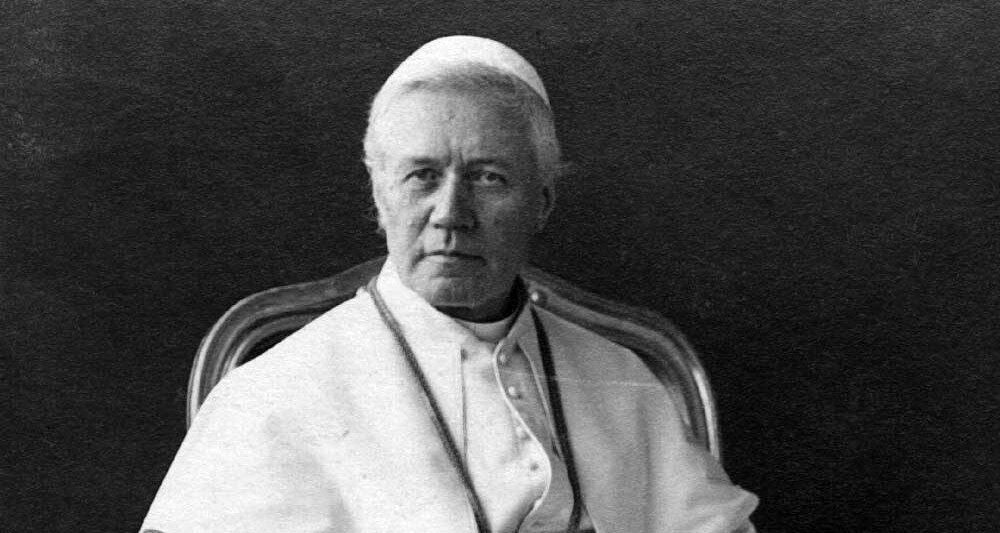When Adoremus published its first issue in November 1995—25 years ago—its founders met head-on a number of liturgical challenges of the day. Translation wars, particularly surrounding the use of “inclusive language,” were boiling over. In too many places, “outlandish innovations” (as Pope John Paul II called them) were common. Beauty and mystery had disappeared from our liturgies and our church buildings—and many Catholics followed suit.
The inaugural issue of Adoremus made clear the publication’s goal: “The mission of Adoremus is to rediscover and restore the beauty, the holiness, the power of the Church’s rich liturgical tradition while remaining faithful to an organic, living process of growth.” It went on to invoke the day’s clearest-thinking churchman, Cardinal Joseph Ratzinger, on the greatness of an authentic liturgy: “Christian liturgy is cosmic liturgy, as Saint Paul tells us in the Letter to the Philippians. It must never renounce this dignity, however attractive it may seem to work with small groups and construct homemade liturgies. What is exciting about Christian liturgy is that it lifts us up out of our narrow sphere and lets us share in the truth. The aim of all liturgical renewal must be to bring to light this liberating greatness.”
The handful of watchwords from this mission statement—beauty, holiness, power, tradition, growth, dignity, truth, excitement—went on to guide Adoremus’s work for over 25 years. Indeed, “excitement,” as Cardinal Ratzinger wrote, is entirely apropos of our liturgical efforts in these years.
For not long after Adoremus’s inception, the tide began to turn. In 2001, Pope John Paul II approved the document Liturgiam Authenticam that would guide future liturgical translations. Rather than employing “dynamic equivalence,” where the weight of the translation leaned to the receptor language and its desires, Liturgiam Authenticam’s “formal equivalence” worked to find words that, while being “easily understandable,” preserved the Latin ritual texts’ “dignity, beauty, and doctrinal precision” (25).
The first of many successful English translations to come was that of the Third Edition of the Roman Missal in 2011. In its pages, we find texts that are the traditional fruits of the Roman Rite yet are expressed in elevated and poetic tones. Even the Missal’s rubrics encourage today’s ministers to look to tradition and direct their gestures and postures not by personal inclination but by “what is determined by this General Instruction and by the traditional practice of the Roman Rite” (42).
Another liturgical blessing came when, upon the death of the beloved Pope John Paul II, Cardinal Joseph Ratzinger, who already made a name for himself as a liturgical theologian, became Pope Benedict XVI. His 2007 motu proprio Summorum Pontificum opened the Church’s ancient rites to more of today’s faithful, which helped usher in a renewed sense of “sacrality” altogether lacking in many postconciliar celebrations.
Connected to these ecclesial movements—and encouraged by Adoremus’s own efforts—liturgical catechesis of both clergy and laity has deepened and taken root. Priests ordained in the last 20 years have by and large been well formed according to tradition, in fidelity to the ritual books, and with an eye to encountering Christ and dispensing his grace to his people. The results of such faithful and artful celebration can’t help but form and change both the priesthood and the laity when it comes to a love for and understanding of the liturgy. As Pope Benedict wrote, “the best catechesis on the Eucharist is the Eucharist itself, celebrated well” (Sacramentum Caritatis, 64).
We are grateful today for the tireless service that Father Joseph Fessio, SJ, Father Jerry Pokorsky, and the late Helen Hull Hitchcock have given to the liturgical apostolate. We are grateful, too, for the prayerful and monetary support of you, our readers, along with—especially with—your personal efforts to pray better, educate others, and give liturgical leadership in parishes and families.
Finally, as we continue working together with our readers, and God grants us his grace and blessings to continue this apostolate for many years to come, please allow me to introduce Adoremus’s publishing team on a more personal level. On this page, you will meet the eight individuals who, in service to our readers and our board, work regularly month to month in publishing the Bulletin, producing podcasts, designing and maintaining our website, sending monthly updates, and undertaking a host of other tasks which ensure the success of our apostolate.
Today’s Adoremus family thanks God that, through holy baptism, we have all been engrafted onto God’s family tree—where Christ is the vine, and we are his branches. We treasure the inheritance that has come to us, and we look forward to carrying on Adoremus’s exciting mission into the future: despite our many successes, much more remains to be done. As our work in the liturgical apostolate passes the 25-year mark, may we continue to work together with our gracious donors wherein “God is perfectly glorified and men are sanctified” (Sacrosanctum Concilium, 7).



